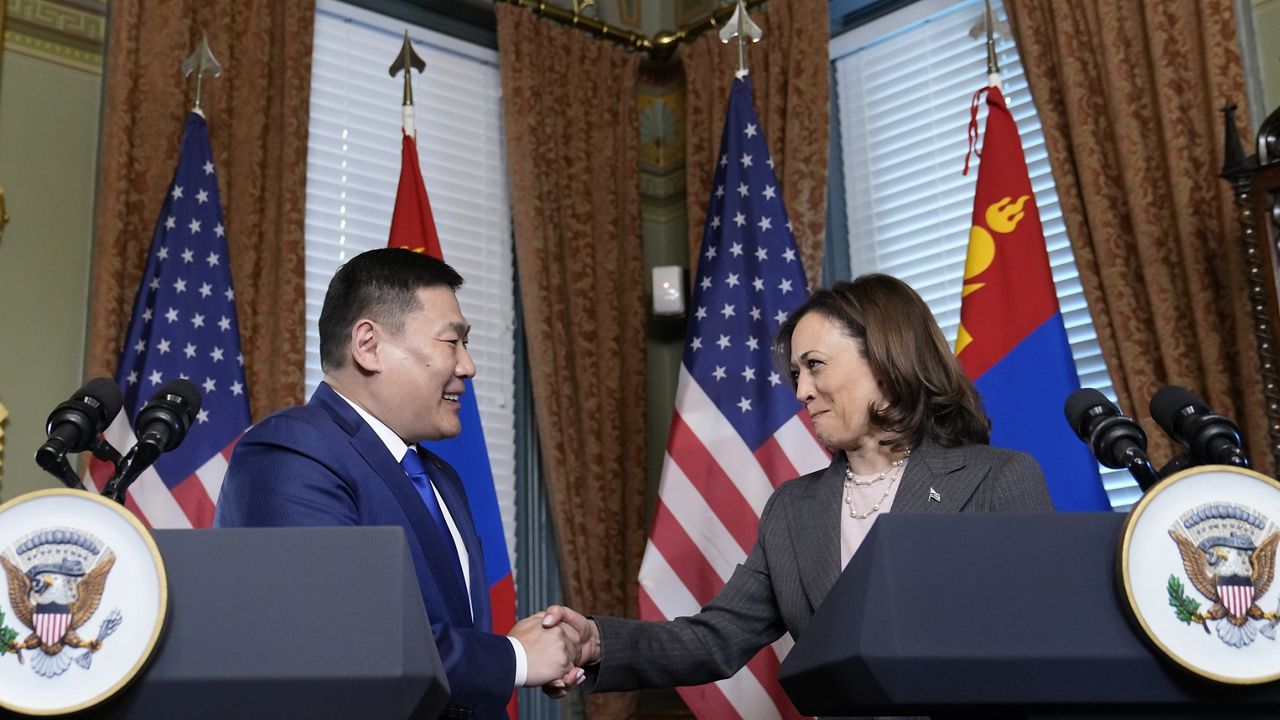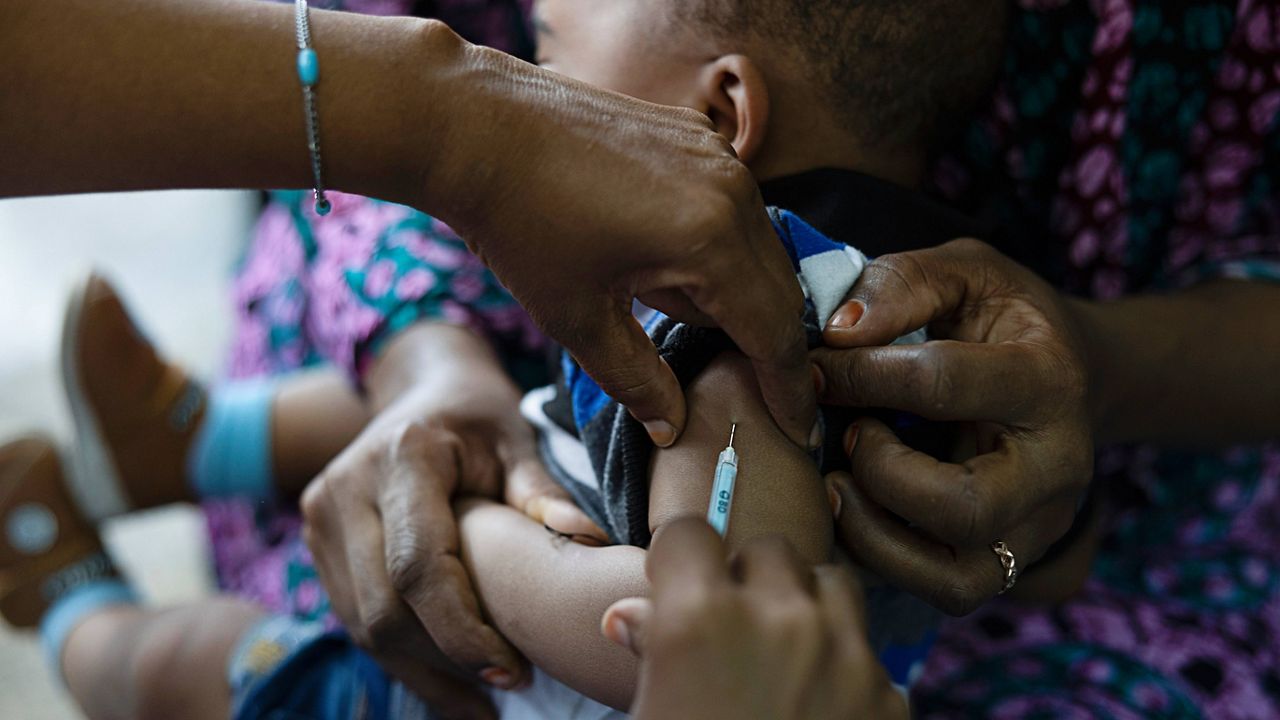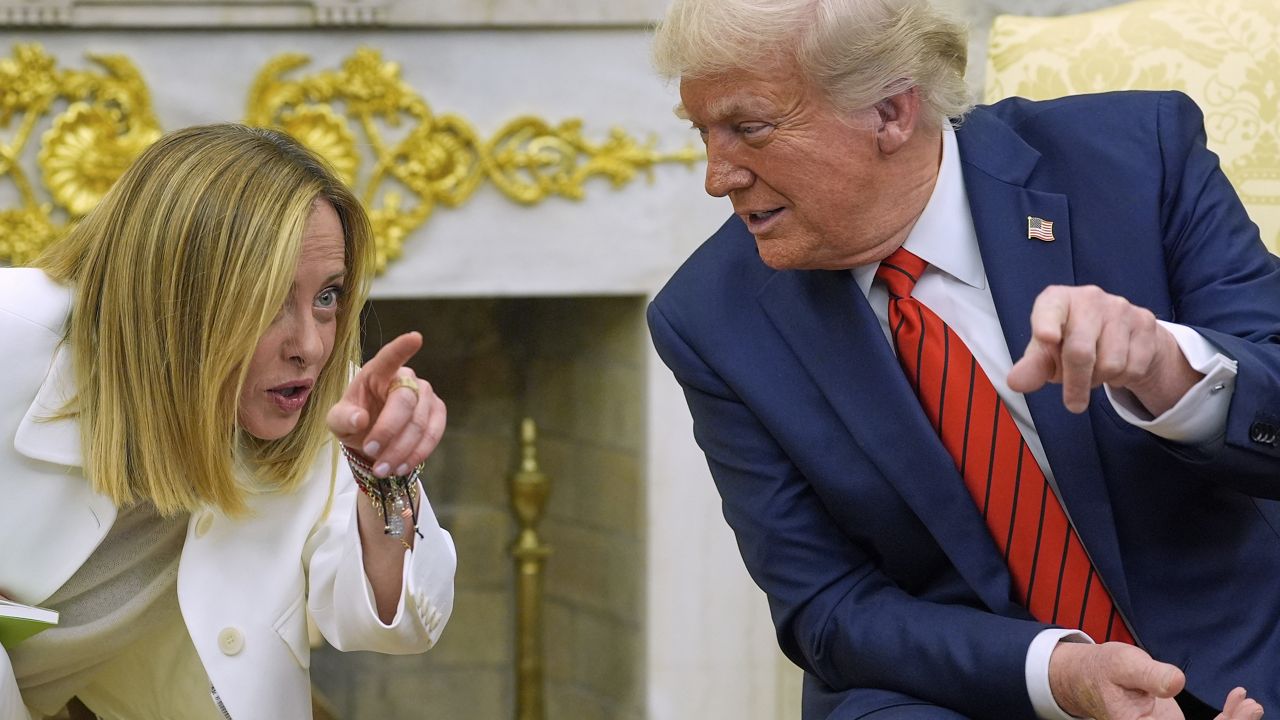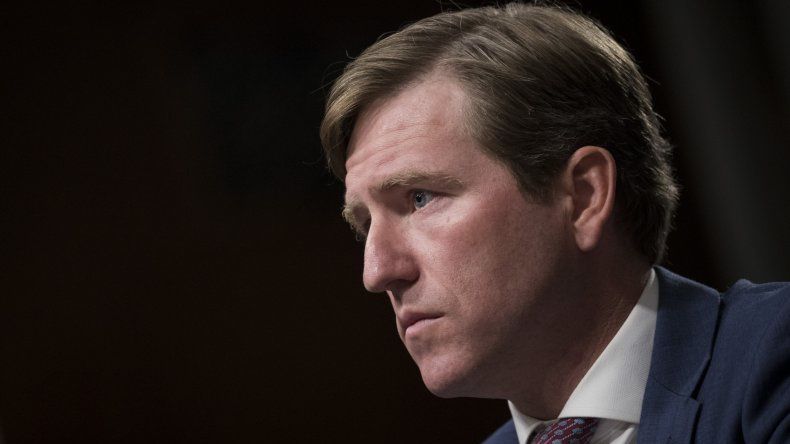Vice President Kamala Harris on Wednesday hosted Mongolian Prime Minister Luvsannamsrain Oyun-Erdene in Washington, D.C., to discuss climate, human rights and a new Open Skies agreement.
It marked the first time since 2018 a prime minister from Mongolia – a country sandwiched between China and Russia – stopped down in the U.S.
With President Joe Biden on a week-long vacation, the vice president took the lead on Wednesday, hosting the prime minister in her ceremonial office on the White House complex and calling Mongolia a “reliable democracy and friend in the Indo-Pacific for more than three decades.”
“It's a great honor to meet you, the first female vice president in U.S. history,” Oyun-Erdene told Harris during the pair’s remarks.
Harris announced the two countries will sign an Open Skies agreement “which will open the door to direct flights between the United States and Mongolia," she said.
Such agreements include eliminating government intervention in certain commercial airline decisions with the goal of more affordable and convenient travel options. As of December 2021, the U.S. has over 130 Open Skies partners, according to the U.S. Department of Transportation.
Mongolia’s grasslands, mountains and deserts hold vast deposits of coal, copper and other rare earth minerals, which are key to President Joe Biden’s stated climate goals. Critical minerals such as cobalt, lithium and more are essential for clean energy technologies like solar and wind power and electric vehicle batteries.
“Soon, Mongolia will become one of the four largest copper producers in the world,” Oyun-Erdene declared at the White House on Wednesday alongside the vice president. "Our copper from the Oyu Tolgoi mine will benefit not only Mongolia, but also the world, because high-tech solutions is part of our commitment [to] fight against climate change."
One of the world’s largest-known known copper and gold deposits, Oyu Tolgoi, is located in Mongolia’s South Gobi region. The project is expected to produce more than 550,000 tons of copper annually at peak production, which the company behind the project estimates is needed to build 16,400 electric vehicle batteries per day.
In June, the U.S. and Mongolia signed a Memorandum of Understanding “to jointly advance secure and resilient critical mineral supply chains in the Indo-Pacific region,” according to a press release of the announcement. The release said the U.S. is “ready” to help advance the sector in Mongolia.
The Inflation Reduction Act, which Biden signed in August of last year, included tax credits for electric vehicles as the president pushes for the ambitious goal that half of new passenger vehicles sold in the U.S. run on electricity by 2030.
Many lawmakers have expressed concern about America’s dependence on China for critical minerals. China produces 60% to 70% of lithium and cobalt, according to an International Energy Agency report.
Mongolia is positioned between Russia to its north and China to its south and its economy has relied heavily on the two powerful countries.
A White House official said China and Russia were expected to be topics of discussion in the pair’s meeting.
“As a proud Pacific power, it is in our vital interest to promote an Indo-Pacific region that is open, interconnected, prosperous, secure, and resilient, which is why President Biden and I have each been, since we have been in office, to the Indo-Pacific three times,” Harris said on Wednesday.








)

